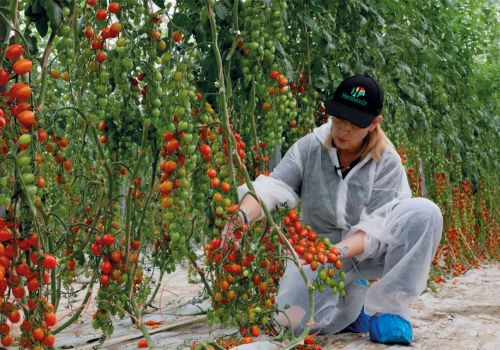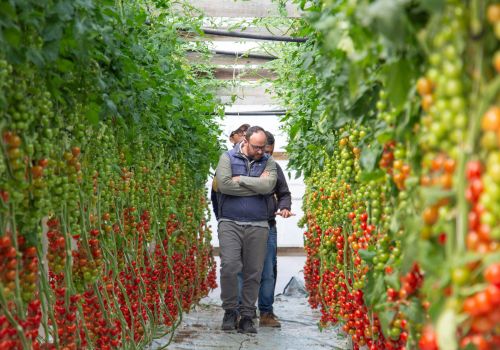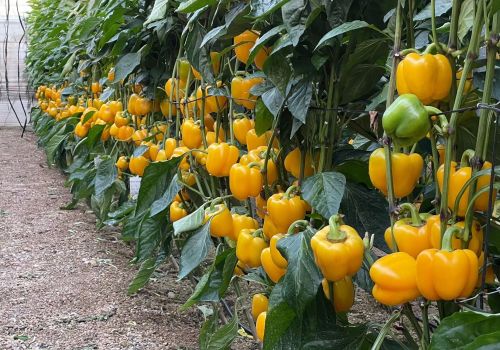
The responsibility of producers in protecting Italian-made products

Lauretta: “‘Tomatoes are an all-time Italian specialty.”
“As producers in the Pachino area, we have a big responsibility, because we export products of excellent quality and keep up the good name of made in Italy products by means of the tomatoes we produce,” says Sammy Lauretta, owner of the Lauretta Salvatore farm, in a testimony obtained directly from the fields by Harmoniz technicians.

Giuseppe Busacca, PD Harmoniz Italy, Sammy Lauretta, Mimmo Roccasalvo, Sales rep. Harmoniz Italy.
“Our territory is traditionally quality-oriented,” adds Lauretta, “historically guaranteed by the unique soil and climate characteristics of our area. Maintaining high quality standards today means producing a good, healthy and sustainable product. Bringing these three elements together, however, becomes more complex year after year. We experienced this firsthand last winter.”
The Lauretta farm covers an area of about 3 hectares, between Ispica and Pachino, and produces specialty colored tomatoes above ground. Red tomatoes in the midi-plum, date and cherry segments are also produced here for the domestic market and for export throughout Europe (mainly to Poland, the Netherlands, Britain and France), sold through various platforms.
“I think this winter,” continues the interviewee, “has taught us something more, that ToBRFV resistance is essential, but it is not enough. The plant must be hardy and must adapt to a Sicilian climate that is rapidly changing, with increasingly hot summers, increasingly wet winters, and significant changes in temperature. We have seen this between November and December 2022, and midi-plum producers, a segment that perhaps more than any other has suffered stress from high temperatures and the resulting humidity, with drastic yield reductions due to bacterial blight and botrytis, will likely be able to confirm this.”
“Fortunately, our production of midi-plum, as well as that of datterino and mixed colors, has maintained excellent quality levels and a regular yield, despite the ToBRFV and the climatic conditions described,” points out the producer. “These results are due in large part to careful varietal selection work, which began last year and continued this year.”

Midres F1, midi-plum resistant to ToBRFV
“I had three midi-plum varieties on trial this season, all three of which were deliberately tested on worn-out coconut fiber cakes, which had already been used for three tomato cycles,” revealed the entrepreneur. “With two of them, I suffered an almost 100 percent production loss, and found myself having to grub out about 2,000 mt of plants in the greenhouse. The only variety that withstood both the aforementioned climatic conditions and the spread of phytopathologies is Midres F1 (formerly TT-633) by Harmoniz, transplanted on 25 September 2022; we managed the variety with ease, and the plant did not suffer excessive stress during the winter period, proving to be little susceptible to fungal diseases and bacterial diseases as well.”

Basoche F1, mini-plum resistant to TOBRFV
“We also had several mixed colors specialties and the mini-plum Basoche F1 from Harmoniz on trial,” concludes Lauretta. “The latter is an excellent date variety that, in addition to being resistant to TyLCV and ToBRFV, is also resistant to bacterial blight and cladosporium, important resistances for those who, like me, transplant in September and have to deal with autumn humidity. The colorful mix also stood out compared to other varieties in production because of its broad resistance package, as well as its excellent adaptability to our climate, which, as mentioned above, is characterized by strong climatic fluctuations.”




